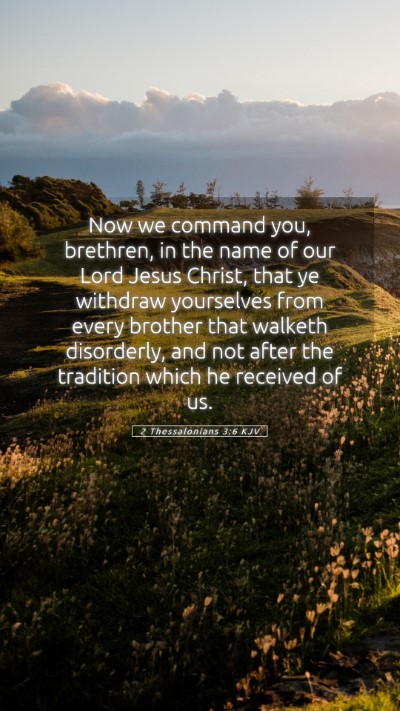Old Testament
Genesis Exodus Leviticus Numbers Deuteronomy Joshua Judges Ruth 1 Samuel 2 Samuel 1 Kings 2 Kings 1 Chronicles 2 Chronicles Ezra Nehemiah Esther Job Psalms Proverbs Ecclesiastes Song of Solomon Isaiah Jeremiah Lamentations Ezekiel Daniel Hosea Joel Amos Obadiah Jonah Micah Nahum Habakkuk Zephaniah Haggai Zechariah MalachiVerse
2 Thessalonians 3:1 2 Thessalonians 3:2 2 Thessalonians 3:3 2 Thessalonians 3:4 2 Thessalonians 3:5 2 Thessalonians 3:6 2 Thessalonians 3:7 2 Thessalonians 3:8 2 Thessalonians 3:9 2 Thessalonians 3:10 2 Thessalonians 3:11 2 Thessalonians 3:12 2 Thessalonians 3:13 2 Thessalonians 3:14 2 Thessalonians 3:15 2 Thessalonians 3:16 2 Thessalonians 3:17 2 Thessalonians 3:18

